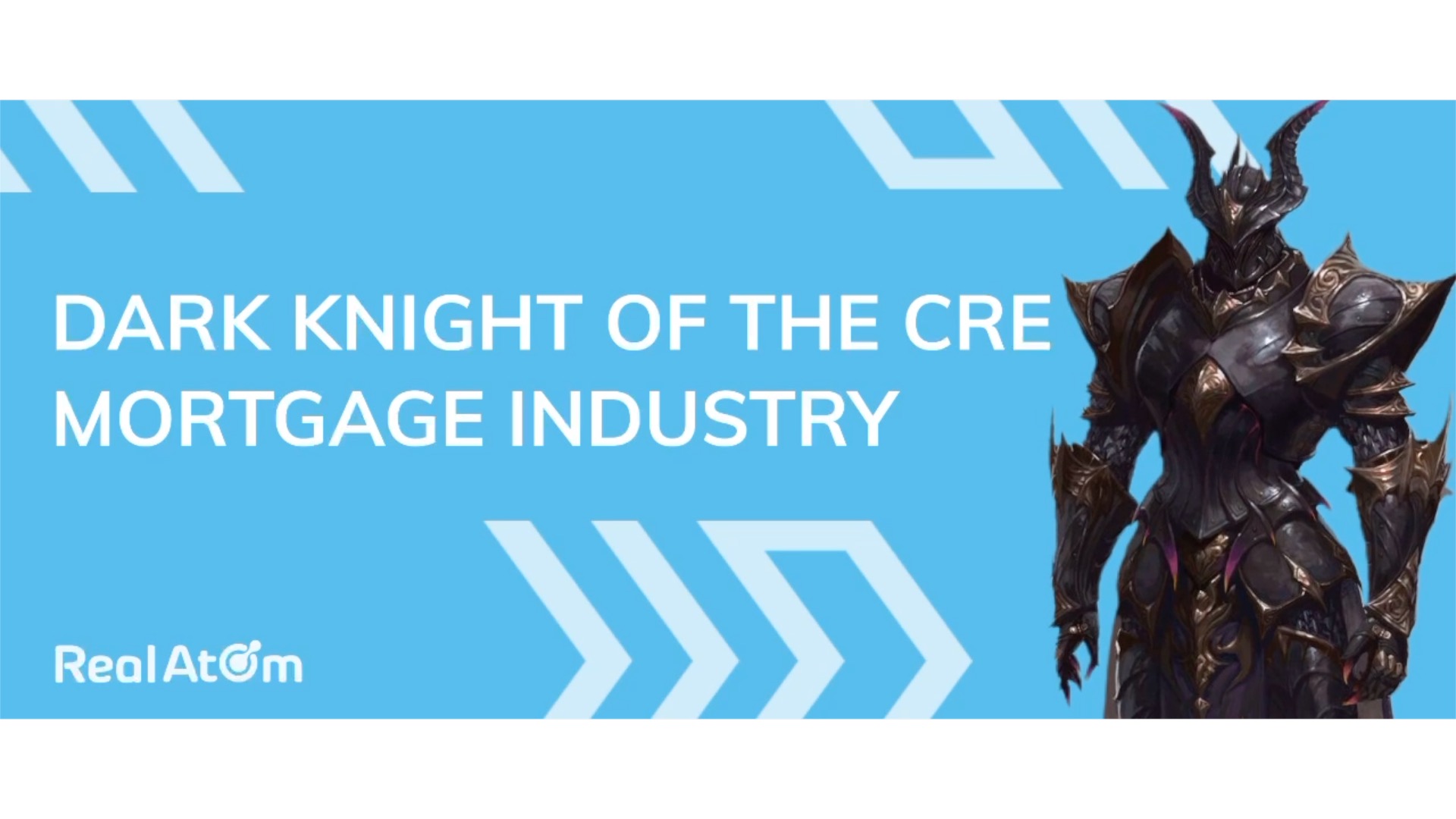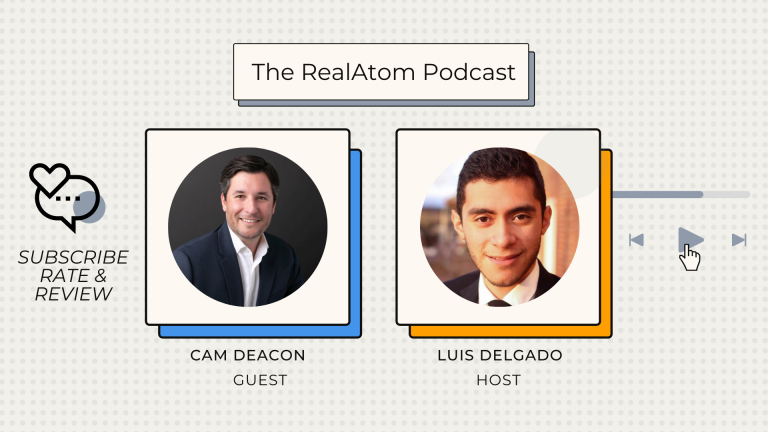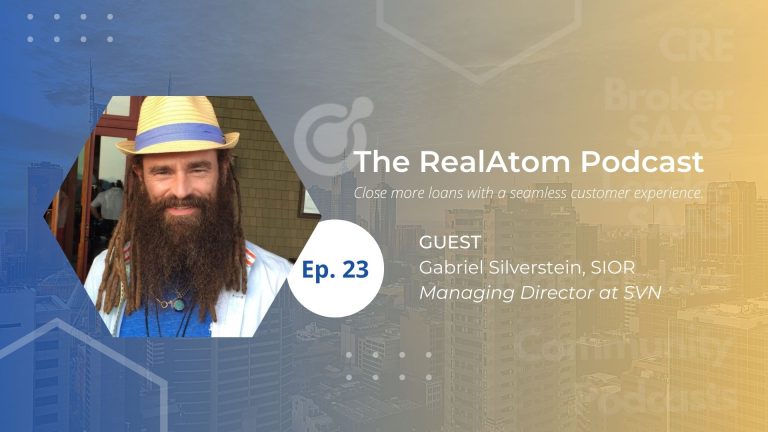Welcome to the 2nd podcast of our new series of podcasts interviewing leading industry experts whom we are privileged to have as clients and advisors.
Today, I am pleased to introduce to you Jack Cohen, President & Chief Innovation Officer of Stronghill Capital to learn from his 40 years of experience about how to capitalize on mistakes and grow commercial real estate lending companies. In this podcast, we will talk about the following topics: secrets of better, faster, and more effective commercial real estate lending OR let the best process win; why do most commercial real estate lenders close less than 3% of what they look at; how to get that hit ratio over 10% through a predictable automated process; the mystery of why life insurance companies get sold or life insurance companies sell their CRE mortgage book; and lastly, how to double your loan volume every year.
Who is Jack Cohen…
Jack has 40 years of experience in the commercial real estate industry. He is a member of many industry organizations like MBA, CREFC, ULI, and others. Jack built, grew, and recapitalized Cohen Financial many times and he is also very much into innovation.
Jack has been around for a long time and he sometimes jokes with some truth that he believes he has made every mistake an operator can make and still survive and prosper. Jack is actually an engineer by education. His first job out of college was as a consultant in the construction industry. According to Jack, he has made three great mistakes in his life. The first one was going to work for his father. He was in Cohen Financial for 35-36 years. He sees himself as a service provider and an operator. But, he has also created kind of an alter ego, no pun intended. He has a private equity business calls DarkKnight Ventures, and it provides intellectual and economic capital to entrepreneurs. So he has learned the hard way how to be an investor in people and in businesses and then hard assets. Currently, Jack is a hired gun working for a $20 billion fixed-income house in Denver called ArrowMark. They own a bunch of portfolio businesses, one of which is StrongHill Capital, which is a small-balance lender.
Let’s hear about StrongHill Capital…
Let’s hear in Jack’s words: StrongHill Capital was birthed by a company called Hunter-Kelsey. Hunter-Kelsey is in Texas and they make loans to homeowners who need financing to pay their property taxes. There are so many fascinating businesses out in the world, who knew that that existed anywhere, let alone the state of Texas. They started that business a number of years ago and got the idea that small-balance lending was an opportunity and they started StrongHill Capital, started investing back in 2007. Into the summer of 2019, I was asked by the ArrowMark people to come in and do a strategy assignment in the guise of DarkKnight Ventures.
After finishing up a strategy assignment, I went to Denver and submitted my plan and my ideas. And dramatically but interestingly, I started to run the business last January.
Challenges, and interesting findings in small-balance loans…
Jack had some interesting findings after running the business for 2-3 months. He found out that in this small-balance area, the competition is leveraged lenders that don’t hold their loans – they securitize, they sell them, and they focus on residential. His judgment is it’s full of hobbyists, not professional owners of income-producing real estate. And it annoyed the living crap out of him because he was used to more certainty of execution. So he said – here’s what they’re going to do at StrongHill Capital. They’re going to build a predictable process that leads to certain results that folks can rely on.
“If we can build a system; if we can automate the system; if we can make this an end-to-end system, which we’re not there yet, can we in fact be an ally to these brokers?”
So they are trying to be a small-balance lender who does little loans for people who otherwise own large loans in our ownership of ArrowMark. So he has moved the minimum to a million dollars. They’re doing 1 to 10 million dollars loans. ArrowMark does 10 to 100 million dollar loans. They closed 149 transactions which was only $158 million, a little more than a million dollars a loan on average. Their plan this year is to do 200-250 loans at an average of about $2 million. And they need systems, processes, procedures, and policies that can scale, so they only do a fixed rate.
Jack starts to talk about the four main goals he, as a small-balance lender, wants to achieve in general, and how technology and automation can help achieve those goals.
Goal #1: Grow the business and scale easily
More and more CRE lenders are looking for processes to grow their business. Without technology and without processes and systems, you cannot double or scale your business fast.
Jack’s observation is if you created the best app and gave it to the top-core-tier of real estate companies, all you would do is accelerate the crash, that the problem we’re having is the technologists themselves are actually better business people than the real estate people. That’s the good news. The bad news is the real estate people don’t really understand the technology and the technology just don’t always understand the pain points or the processes or connections. Therefore, they have done a little bit of trial and error and they’re making progress.
But innovation is not a bottomless pit, it’s endless. To build processes, you need to optimize at the point of the bottleneck because any optimization before or after is a waste of resources.
For example, let’s see how RealAtom’s lender partner is doubling their business with technology: $75 million in 2019, $158 million in 2020, an estimated $400 million in 2021, and $650 million in 2022.
Goal #2: Improve the hit ratio (loans closed vs. applications reviewed)
According to Jack, his current approach is to: (1) go find as many loans as you can; (2) manually sift good financing from bad financing; (3) process the good stuff, and finally (4) create a hit ratio.
Most of the industry closes less than 3% of what they look at. However, you probably would want to triple your hit ratio, right? The originators had to know what the difference is between a financeable deal and non-financiable deal, what deals you can or cannot close doing the sifting for you. So your originators focus on deals they can close, versus wasting their time on deals that are irrelevant.
Goal #3: Efficiencies drive costs down
StrongHill Capital also works with life insurance companies. Jack mentions, if you’ve noticed in the last couple of years, life insurance companies get sold or life insurance companies sell their mortgage book. Why is that? The answer is: they can’t afford it. A good example, a life insurance company that has a team of 25 originators and 25 support people while they close only 115 loans per year. At the same time, they review thousands of applications. Remember their Hit ratio is only 3%. They are slow with change and end up with business they can not afford.
The business model when you consider StronngHill Capital is to act as an outsourced investment manager for life companies. So life companies, not all of them have an origination staff, not all of them can sign deals or access you. For example, on Friday he will deliver to a life company with a $52 million pool of mortgages. That life company had no cost of origination. All they did is StrongHill Capital originated to their specification, built the mosaic and the portfolio, and delivered that pool to them. So they are getting excess yield and diversification of loans with zero origination costs.
Goal #4: Your customers love you
Jack has shared some interesting deals they are working on lately. In the small space, it’s actually serving the need, like the verge community is a little lonely. They can’t get any attention to it. And so he doesn’t know that any of them stand out, the dentist who buys his office building, or the self-storage transaction that wasn’t ready for a life insurance company, cause it hadn’t leased up. StrongHill Capital created a master lease and a reserve. They did one in Battle Creek, Michigan, and then one in La Grange, Georgia, which he couldn’t find and needed help finding on Google maps.
He is just trying to build a business that supports the outcome of his customer.
And right now with their customers, what they’re focused on is the brokerage shops. In addition, they’re trying to help the young ones get in, who are getting into business, learn how to do the business, cause they all learn on small loans. And the big shots who have customers they’ve been financing for 20 years, their customer is not going to let them do the million-dollar loan with somebody else in the office. They got to do it. “Hopefully, we can make it easier for Joe,” said Jack.
Another interesting finding shared by Jack was learned during COVID last year. Because of the strength of these small entrepreneurs, buying real estate is part of their lifestyle. When Jack’s team underwrites global cash flow, they want to know where all their money’s coming from so that they can understand. And in most cases, these loans augment, they need the cash flow to augment their life. So they work hard to maintain these properties and they’re small, they don’t hire. “Do we have opinions about who’s better than others? Do we have opinions about what cities we should be in?” According to Jack, these are all evolution and trial-and-error.
We see a lot of lenders that strive to do better tomorrow than they were yesterday. The winners will be those that do it better, faster, and more effectively. Those who are going to keep changing the way they do things.
Then we talk about what’s changing in the CRE industry right now, in three years and in five years…
Jack thinks there are several clear trends.
First, he thinks the next generation of real estate operators sending us here, the capital provider wins based on data analytics. He actually thinks predictive analytics and the ability to not just use machine language, but machine learning and AI to start actually managing big sets of data is the future of the CRE industry and our business. The reason why somebody should want to own a small balance loan is you should be able to get a premium yield for small balances.
Next, Jack believes the next three years are going to be really dynamic in our industry. And he thinks the key to it is technology. Due to the outgrowth of the virus, it is going to call into question transit-oriented development. San Francisco, Chicago, even New York, no one wants to get on the train. Everyone’s working from home. So suburban office and suburban retail are starting to see an uptick, but all these buildings are going to have a lower rental, higher vacancy, higher cleaning costs, higher security class, higher insurance costs lowering their NOI, which will lower value and erode equity. So can capital come in, a bunch of people has raised a bunch of money for capital, rescue capital because they think they’re really gonna find a deal? We’re going to see values reset and an opportunity for the next generation to make a bunch of money.
When I ask if you could say only one thing to all the people in the industry that will help them to advance in whatever they do, what would it be? Jack replies: Best idea wins.
Jack explains: I tried to buy in the nineties, I was trying to buy my first business. And I screwed up the acquisition and the guy says to me in a meeting, “Jack, do you want what you want? Or do you want to be right?” It took me 15 years to figure out what he was telling me. I wanted him to say, “Yeah, Jack, your business plan in Cohen Financial is better than mine. You win”. What a moron! What I really wanted was to buy his business. In this industry, if you could let go of being right and instead acknowledge that the best idea wins and now apply that to constantly approach your daily business, better, faster, cheaper. We all win. So, what you want is opposed to being right.
Jack has shared many stories and experiences of him, and I was very impressed. Therefore, at last, I ask him to share his wisdom on how does he manage to do all. Jack has highlighted that there are only three things we have to do to be successful in our life but we have to do it every single day.
“You have to acquire skills, you have to accumulate experiences, you have to develop relationships.”

;)



